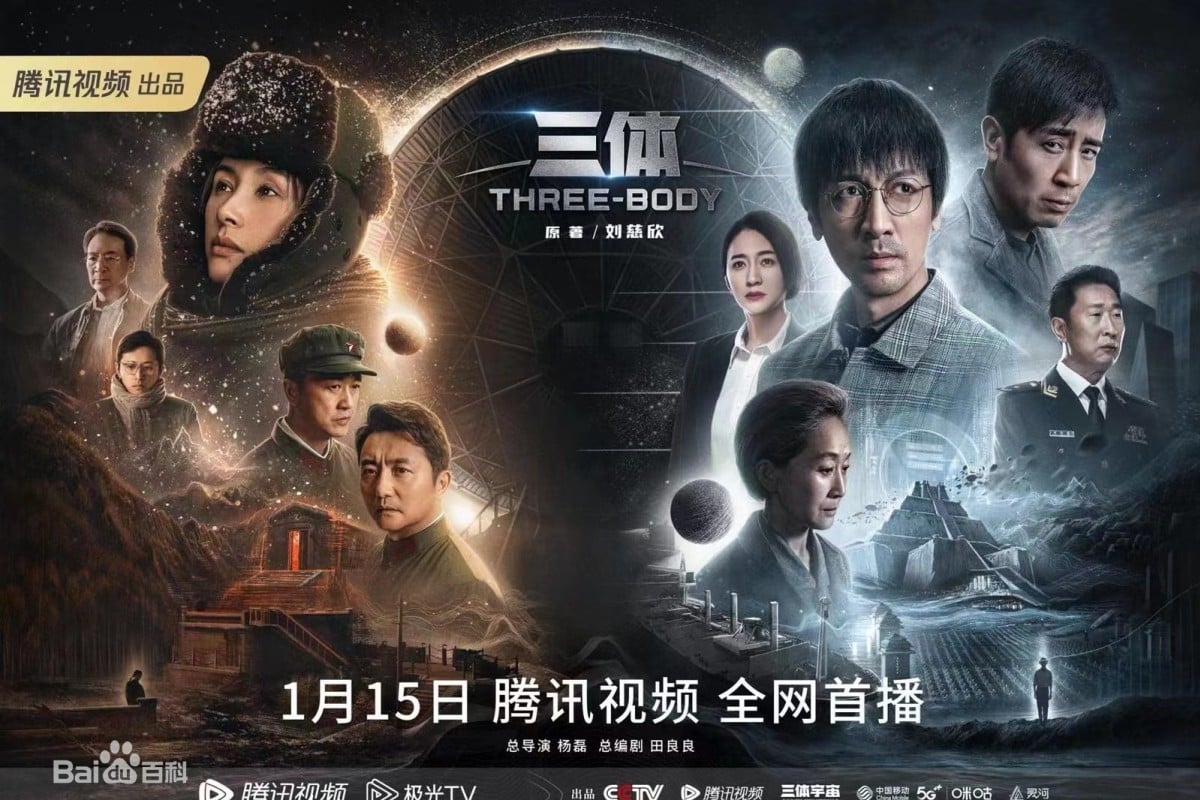Chinese author Cixin Liu's "The Three Body Problem" -- the first of a sprawling trilogy -- is a mind-blowing novel that's spawned not one but two TV series in the last two years. Chinese media conglomerate Tencent crossed the finish line first, debuting "三体" ("Three Body") in 2023. Netflix followed with "The 3 Body Problem" in 2024. How do the two series compare? I've read the entire book series multiple times and having watched both series; here's what I think:
Length:
The Tencent version consists of 30 episodes, almost all of which are around 40-45 minutes. One episode was noticeably shorter, quite likely due to Chinese censorship as that part of the story would have gone into detail about a traumatic event during the Chinese Cultural Revolution. The Netflix version consists of only 8 episodes, though the individual episodes are slightly longer.
Neither version is like Goldilocks. To stretch a 400 page novel into 30 episodes, the Tencent version invents new characters and storylines, and increases the presence of the main character's family. While I plowed through all 30 episodes, it probably could've been cut down to 20 without losing much.
On the other hand, the Netflix version speeds through the book so fast that it's more like highlights rather than the full story. A good portion of the novel is set in the 1970s during the Cultural Revolution; without this storyline, the actions of one important character are hard to fathom. The Netflix version spends just three sequences on this time period, whereas it's a consistent parallel storyline in the Tencent version.
Also getting short thrift in the Netflix version is the super-advanced VR game. Sequences that take an entire episode in the Tencent version are disposed of in a few minutes in the Netflix version, if depicted at all.
The net effect is that the disorienting sense of "what is going on??" in the book and the Tencent version goes away too quickly in the Netflix version. Maybe this isn't as big of a deal for viewers who haven't read the book, but I definitely felt like questions were answered too quickly in the Netflix version.
[SPOILER]
Even more confounding is that with only 8 episodes, the Netflix version nevertheless wrapped up the first book in five episodes! That means nearly 40% of the first season actually delves into the second and third books...
[END SPOILER]
Production Values:
Netflix spent $160 million; Tencent spent (reportedly) $10 million. It's not surprising that the Netflix version looks fantastic. What is surprising is that the Tencent version doesn't look significantly cheaper. Still, you can see what money buys when you compare the climactic Judgment Day scene (I won't say more to avoid spoiling).
Casting:
Okay, this is a complicated topic. The novel is set mostly in China, with a primary cast of Chinese characters, though there are two Americans who play significant roles. The most important characters are:
Wang Miao, a nano-researcher/applied physicist
Da Shi, a police detective investigating a rash of deaths by suicide of physicists
Ye Wenjie, a retired physics professor and survivor of the Cultural Revolution
Mike Evans, an American trust fund hippy
Colonel Stanton, a Special Operations military officer
The Tencent version casts actors in line with the novel. (Well, except it's not Americans playing Americans -- the actors have Australian accents, or something.)
Netflix cast Rosalind Chao as Ye and Benedict Wong as Shi, but split Wang into two characters, one played by Eiza Gonzalez and the other by Jess Hong. But it also pulled characters from the second and third novels (parts of which take place simultaneously with part of the first book), all of which were Chinese, and race-swapped them into a Black man, white man, white man, and South Asian man. Hong's character was also taken from the third book but was given a large part of Wang's storyline.
Honestly, I thought this white-washing of Chinese characters would annoy me more than it actually did. Netflix spent $160 million and needs the show to appeal to a wide global audience, and it's banned in China anyway, so diversifying the cast and moving the modern day storyline to England accomplishes the broadening of global appeal. And the two most interesting characters were Wong's and Hong's. Plus, using the characters from the second and third books works out well (if the show is going to get renewed).
Still, a part of me still laments what could have been...the original novel is possibly the most successful Chinese export of fiction to the western world. It's a shame it couldn't have been a way to showcase a predominant Chinese-American cast to the western world.
Conclusion:
I liked both series, and it was interesting to compare artistic choices that were made in terms of translating the book to the screen. The Tencent version is clearly more faithful in that it shows you how the characters arrived at their conclusions/decisions/etc., whereas in the Netflix one it sometimes felt like: "1. question. 2. ??? 3. resolution." I would say if you watch the Netflix version and enjoy it, try the Tencent one -- it's a slower build-up, but I think more satisfying. (If you don't like the Netflix version, you probably won't like the Tencent one either.)

:format(webp)/cdn.vox-cdn.com/uploads/chorus_image/image/73219894/3bodyproblemadapt_netflix_getty_ringer.0.jpg)